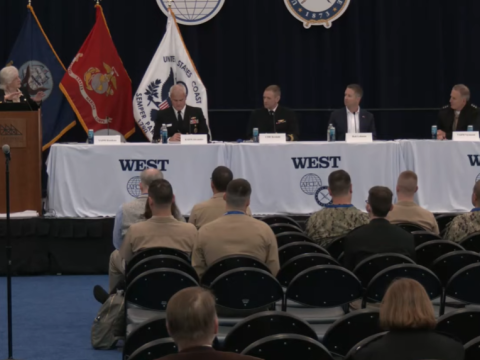INTELLIGENCE IN THE OPEN -- A CONTINUING ISSUE
Until very recently, intelligence was a small, deeply secret aspect of public affairs. Terms like black chamber and secret service described functions that demanded to be performed but with little or no public notice. The name of the head of Britain’s MI-6 was, as a remarkable reminder of this era, secret until very recent times. In the United States, the existence of the National Reconnaissance Office was classified until the 1990s, and we all know that the National Security Agency was often described, in jest but perhaps not fully in jest, as “No Such Agency.”
Things have changed. The publication of the books on World War II cryptology (the Magic and Ultra literature) took place just about the time Watergate and other events placed American intelligence under intense and unflattering light. Within a few years, congressional oversight structure came into being, a trend followed to one degree or another in the other industrial democracies.
This has been a stressful process for the intelligence professions. Not that long ago, Richard Helms could suggest that the public would simply have to trust that the intelligence services were staffed by “honorable men” and leave it at that. At least one member of the United States Senate was chastised on the floor of the Senate for even suggesting that the intelligence community required further scrutiny. Now it is not uncommon for heads of agencies to appear in open sessions before congressional committees, and National Intelligence Estimates or their key judgments are occasionally released – not leaked – even if in redacted form. There exists a cottage industry of intelligence programs on the Discovery Channel or the History Channel, many universities now offer intelligence studies programs under that name or something similar, and a recent academic conference include nearly twenty panel sessions on intelligence in its various aspects. The identity of the head of MI-6 is now public knowledge.
A late official of the National Intelligence Agency for whom I once worked, and whom I greatly respected, would from time to time raise many of these developments with a look that suggested we had lost our collective minds to allow this to happen, although it is hard to share the view that the “age of openness" is something the intelligence agencies allowed to happen. It happened. End of story.
Part of this is the more or less inevitable result of the growth of intelligence as a public function. The late Everett Dirksen used to note, in opposing one small appropriation or another that “a million dollars here, a million dollars there, and pretty soon you’re talking about real money.” Leaving aside that discussing public expenditures in the millions seems quaint, the reality is that intelligence is now publicly known to cost the American taxpayers some $80 billion dollars per year. That is, at any scale, real money, and the thought the public would not expect scrutiny and review – including fairly public review – of that spending is unrealistic.
Then there is the operating environment. Once upon a time, and it seems almost appropriate to discuss it in those fabulous terms, intelligence equaled foreign intelligence and the public had relatively few concerns about the domestic role of agencies apparently focused on a possible invasion through some location called the Fulda Gap or a nuclear launch across the Arctic.. But the events of September 2011 blurred significantly the lines between foreign and domestic, and cyber as a national security issue may more or less obliterate what’s left of that division.
AFCEA and its Intelligence Committee cannot ignore these developments. In fact, our goal is to assist the intelligence establishment (as part of the larger national security establishment AFCEA serves) in aligning with these developments. Whether that means dealing with the certain leveling off (stated optimistically) of appropriations, or providing as we have always said an ethical forum for public/private cooperation in the national interest, this has been the organization’s commitment for over 65 years. From the Intelligence Community’s perspective, this means an enhancement of AFCEA’s intelligence outreach program to include for the first time an unclassified, open-to-the-public intelligence event.
On June 7th and 8th, we will sponsor AFCEA’s first National Intelligence Forum in San Antonio, Texas. (http://intelforum.afcea.org). The theme of this event is Cyber Intelligence Unclassified Tradecraft. This an important precedent for AFCEA Intelligence, taking place outside Washington and at the unclassified level. Some of you will note that AFCEA also has a Cyber Committee, and you may ask why the Intelligence Committee is “trespassing” on that committee’s turf. Simply stated, we are not. In what we believe will be customary and required practice for AFCEA in this incredibly connected environment, the Intelligence and Cyber Committees routinely work together. We have liaisons between the committees (something of a variant on what the Intelligence Community used to call “hostage exchanges” when officers moved from agency to agency). We will operate this way because the environment – and the public interest – demand it, as it will demand more, not less, public/private partnership. Our plans are still in the early stages at this point, but we hope to make the Intelligence Forum an annual affair, with the real possibility that the Intelligence Committee’s next precedent setter will be a major event outside the United States. (Get your passports ready!) Until then, all of us on the committee look forward to an important conversation in San Antonio between AFCEA’s intelligence and cyber professionals. Please plan to join us.
Bill Nolte
Bill Nolte is a research professor at the School of Public Policy at the University of Maryland and chair of the AFCEA Intelligence Committee


Comment
Bill Nolte-
Comments